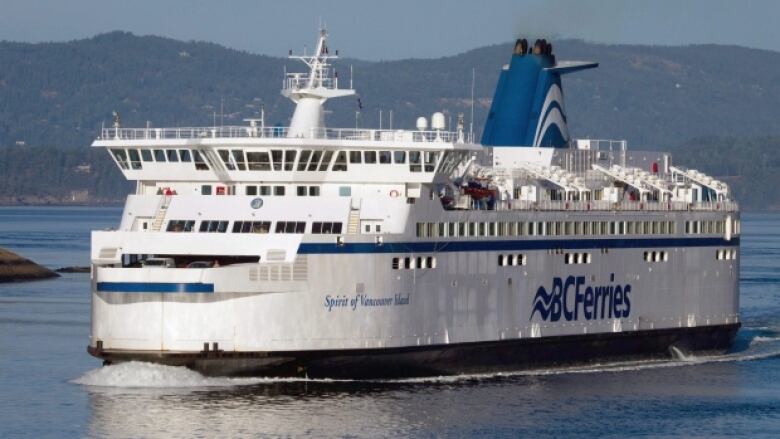What's going to cost you more — and less — in B.C. in 2021
Food will cost a lot more but you may be able to make up for it with lower ICBC rates

From ferry and transit fares to electricity and food, here's a rundown of some of the goods and services that are going to cost more — and some that will cost less in 2021.
Even more pricey eats
For the third year in a row, British Columbians can expect to shell out more for food in 2021.
The average Canadian family will pay up to an extra $695 for food this year, as the pandemic, wildfires and changing consumer habits drive up grocery bills with the biggest increase ever predicted by an annual food price report.
Rising prices for bread, meat and vegetables are expected to lead the overall food price increase of three to five per cent, according to Canada's Food Price Report 2021, released in early December.
For an average family of four, that means a $13,907 grocery bill.
$400 savings on ICBC rates
The B.C. government announced plans in February to radically overhaul the province's vehicle insurance system by cutting lawyers out of the process through what it calls an "enhanced care" system.
The province claims that Insurance Corporation of B.C. premiums will drop by as much as 20 per cent — an average of $400 a year — as the insurer moves to introduce a system designed to redirect hundreds of millions of dollars spent on legal costs each year toward benefiting people injured in crashes.
The change in legislation takes effect on May 1.
Ferry fares going up
Fares with BC Ferries are set to increase by 2.3 per cent on average across the entire fleet in 2021 and by the same amount again in 2022 and 2023.
The corporation said the increases are being made to meet rising operating costs and the replacement of infrastructure.
The exact increases for individual routes are still being determined. BC Ferries says it will announce its final new pricing structure in April.

Currently a foot passenger ticket from Tsawwassen to Swartz Bay costs $17.20, while the cost for a standard vehicle on that route is $57.50.
In early December, BC Ferries, BC Transit and TransLink inked a deal with the province and Ottawa for more than $1 billion in pandemic relief funds.
The Safe Restart money is meant to help public transit providers cover revenue and operational losses from the COVID-19 pandemic.
The ferry service was awarded $308 million.
Transit
TransLink got $644 million in the same funding agreement, but is planning on a 2.3-per-cent fare increase in July.
TransLink says the increase is lower than originally planned thanks to the new funding. For a regular, one-zone adult fare, the increase translates to seven cents.
The planned increase for 2020 was cancelled due to the pandemic, TransLink said.
Outside the Lower Mainland, BC Transit — which operates bus service for 130 communities including Victoria — says it is working with partner municipalities to determine what fares will increase, if any, in 2021. BC Transit received $86 million in the Safe Restart funding agreement.
Electricity
BC Hydro residential customers can expect to see, on average, a $4 credit on their bill in 2021.
It's a result of an additional 0.61-per-cent rate decrease that is effective retroactively to April 1, 2020.
Commercial customers will receive $10 to $600 on average, depending on the size of the business, and industrial customers will receive up to $375,000.
BC Hydro says it has applied to the B.C. Utilities Commission for a 1.16-per-cent rate increase, which, if approved, would come into effect in April.
FortisBC, which provides electricity to Kelowna, the South Okanagan, and the West Kootenay-Boundary region of B.C., will increase its general rate by 4.36 per cent effective Jan. 1.
As a result, a residential customer with average use of approximately 12,000 kilowatt hours (kWh) per year of electricity would see their monthly bills increase by about $7.30 per month.
FortisBC says the increase is needed for $72 million in electric infrastructure projects in 2021.
The company increased rates by one per cent in January 2020, which was the first increase since 2017.

Natural gas
FortisBC says most natural gas customers will see a rate increase in 2021, effective Jan. 1
For FortisBC residential natural gas customers in the Lower Mainland, Fraser Valley, Interior, Whistler, Vancouver Island and the Kootenays, monthly natural gas bills will increase by approximately eight per cent, or $6, based on an average usage of 7.5 gigajoules per month.
For residential customers in Fort Nelson, monthly bills will increase by approximately five per cent, or $4, based on an average usage of 10 gigajoules per month.
FortisBC says the rise in rates is to cover increased costs to store, transport and deliver energy.
There is good news for propane users in Revelstoke. FortisBC says their annual bills are set to decrease by about 36 per cent, or roughly $350 due to an amalgamation among rates provincewide.
Property taxes
Many municipalities in B.C. will be working over the next couple of months toward approving budgets, which often include property tax increases.
So far it appears homeowners in Vancouver will see an increase of five per cent, which would be lower than 2020's seven-per-cent increase.
It means the owner of an average single-family home assessed at $1.57 million would see a $146 increase.
Surrey's budget includes a 2.9-per-cent property tax increase in 2021, but a tripling of the city's capital parcel tax from $100 to $300. It applies to every property in the city.
Mayor Doug McCallum said in early December that the parcel tax increase would allow the city to fund a number of needed projects while taking on less debt. The projects include a community centre in Newton and upgrades to Bear Creek Park Athletics Centre.
With files from Justin McElroy